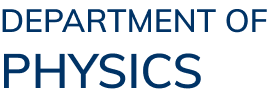In a quantum theory, the vacuum is seemingly trivial from its name and definition, but is actually quite subtle and rich. The miraculous Casimir effect is just a consequence of vacuum energy, while the famous Hawking radiation arises from the ambiguity of the vacuum. Another interesting feature of the vacuum is its ubiquitous entanglement. I will discuss two topics related to the nature of the vacuum. The first topic is about the instability of the vacuum in de Sitter space. More specifically, we show that the non-Bunch-Davies vacuum of a massless field will decay into the Bunch-Davies vacuum through interactions. This is substantiated explicitly by computing the one-loop corrections and then resumming multi-loop contributions. The result is not only theoretically important in understanding de Sitter space itself, but also has significant implications in cosmology. The inflationary era of the early universe is well approximated by de Sitter space; and the curvature fluctuations there, which can be observed in the Cosmic Microwave Background, are described by a massless scalar field. In such a context, our calculations in particular resolve the pathological divergence of non-Bunch-Davies non-Gaussianity in the folded limit. While for the Bunch-Davies vacuum, our results imply that the iϵ-factor, which is not well justified previously for inflation, would emerge naturally here due to interactions. In the second part, I will investigate entanglement entropy in flat holography. Based on the BMS symmetry and using the Rindler method, we calculate the holographic entanglement entropy in flat space-time and propose a geometric picture for entanglement entropy. Going beyond the AdS/CFT paradigm, our study may shed some light on understanding quantum gravity and emergence of space-time through entanglement in more general holographic setups.
Nature of the Vacuum in de Sitter and Flat Space
Nature of the Vacuum in de Sitter and Flat Space
14:30
Room 4504 (Lifts 25-26), HKUST
Event Format
Speakers / Performers:
Mr Hongliang JIANG
Department of Physics, The Hong Kong University of Science and Technology
Language
English
Organizer
Department of Physics
